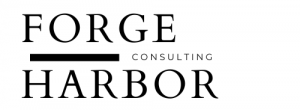Understanding the Responsibilities of a Great Financial Expert Witness Impact
One of the main responsibilities of a financial expert witness is to analyze financial evidence and provide an expert opinion on the financial implications of the case. This can include analyzing financial records, interpreting financial data, and providing insight into the financial strategies and tactics used by the parties involved.
Another responsibility of a financial expert witness is to provide expert testimony in the courtroom. This can include explaining complex financial concepts to the judge and jury, providing explanations of financial evidence, and answering questions from the opposing counsel.
Communicating complex financial information to non-financial experts is also a crucial responsibility of a financial expert witness. This can include using clear and concise language, providing visual aids, and breaking down complex financial information into manageable chunks. The expert witness should be able to explain financial concepts in a way that is easily understood by the court and jury, even if they are not familiar with financial jargon or complexities.
In summary, the responsibilities of a financial expert witness in presenting complex financial information include analyzing financial evidence, providing expert testimony, and communicating complex financial information in a way that is easily understood by the court and jury. A good financial expert witness should be able to simplify complex financial information and explain it in a clear and concise manner.
The Importance of Simplifying Complex Financial Information for the Court and Jury
When it comes to financial expert witness testimony in legal proceedings, simplifying complex financial information for the court and jury is essential for ensuring a fair and just outcome. Complex financial information can be difficult for non-experts to understand and can make it hard for the court and jury to make informed decisions based on the evidence presented.
Simplifying complex financial information can be achieved through the use of clear and concise language, visual aids, and breaking down the information into manageable chunks. A financial expert witness can use simple examples and analogies to explain financial concepts and make them more accessible to the court and jury. It’s also important to keep in mind the audience, to present the information in a way that is easy to understand by non-financial experts.
Visual aids such as charts, graphs, and diagrams can also be used to help simplify complex financial information. They can provide a clear and easy-to-understand representation of financial data and can help the court and jury to see patterns and trends that might not be immediately obvious from looking at raw data.
Simplifying complex financial information can also help to minimize the risk of confusion and misinterpretation. Clear and concise explanations can help the court and jury to better understand the financial evidence and the implications of the case. This can ultimately help to ensure a fair and just outcome.
In summary, simplifying complex financial information for the court and jury is essential for ensuring a fair and just outcome in legal proceedings. Financial expert witnesses can achieve this by using clear and concise language, visual aids, and breaking down complex financial information into manageable chunks. This can help the court and jury to better understand the financial evidence and make informed decisions based on the evidence presented.
Know How Niche or Broad You Need to Be
When searching for a great financial expert witness, it’s crucial to determine how niche or broad their expertise needs to be. Depending on the case, a highly specialized expert may be necessary to address specific financial topics or strategies. In contrast, a more generalist expert may be better suited for cases that require a broader understanding of various financial principles. Be sure to assess the specific needs of your case and search for an expert witness with the appropriate level of expertise.
Have They Experienced a Case Similar to This?
A great financial expert witness should have experience with cases similar to yours. This experience ensures they have a deep understanding of the relevant issues and are familiar with the challenges that may arise during the litigation process. When evaluating potential expert witnesses, inquire about their past case experiences and the outcomes they have helped achieve. This information can provide valuable insights into their abilities and the likelihood of success in your case.
Conflicts in Interest
Identifying potential conflicts of interest is an essential step in selecting a great financial expert witness. Conflicts of interest can undermine the credibility of an expert witness and, in some cases, lead to disqualification. Be sure to thoroughly vet potential expert witnesses for any existing or past relationships with opposing parties, financial ties to the subject matter, or other factors that could compromise their objectivity. Transparency and open communication are key in addressing any potential conflicts of interest.
The Way the Individual Communicates About Their Expertise
Effective communication is a critical skill for a great financial expert witness. They must be able to articulate their expertise, opinions, and findings clearly and persuasively in both written and oral forms. Look for an expert witness who can provide concise explanations and present complex information in a way that is easily understood by the judge, jury, and attorneys. Additionally, consider their ability to handle cross-examination and respond effectively to challenging questions.
Can Others Understand Their Explanations Easily?
In financial litigation, complex concepts and terminology are often central to the case. A great financial expert witness should be able to break down these complex ideas and explain them in a way that is easily understood by non-experts. This skill is crucial in persuading the judge or jury and ensuring that the expert’s testimony is both accessible and impactful. When evaluating potential expert witnesses, consider their ability to simplify complex information and communicate it effectively to a diverse audience.
Finally, Ensure They Align with Your Style
In conclusion, a great financial expert witness possesses a unique combination of niche expertise, case experience, strong communication skills, and the ability to simplify complex information. Additionally, it’s essential to ensure that the expert witness aligns with your style and approach to the case. By considering these factors, you can identify an expert witness who will not only provide valuable insights but also help build a persuasive and compelling case.










